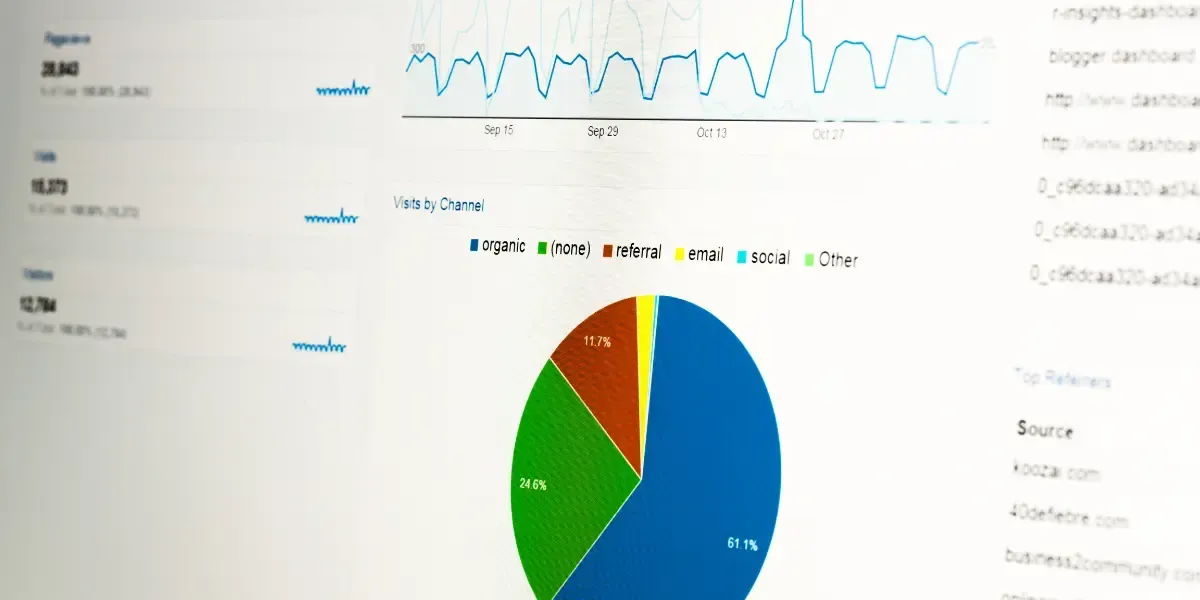How To Rank On The First Page Of Google In New Zealand

Taking Control: Why In-House Digital Marketing is the Key to Success
No matter the industry of your business, securing a coveted spot on the first page of Google’s search engine results pages (SERPs) is a top priority across New Zealand.
It’s a well-known fact that most people rarely venture beyond the first page of search results, making first-page rankings essential for increasing website visibility, driving organic traffic, and establishing authority within your industry.
Contents
- Master Long-Tail Keywords
- Create High-Quality Content
- Explore Different Content Formats
- Target Google SERP Features
- Focus on User Experience
- Learn from Competition
- Earn Quality Backlinks
- What Affects Organic Rankings?
Listen to this article
In this guide, we distil our wisdom from over 14 years of SEO services, providing you with the seven key areas that can help improve your chances of ranking on Google’s first page.
Seven Tips to Ranking Well on Google
1: Master Long-Tail Keywords
The first step towards achieving a first-page ranking on Google is to master the art of long-tail keywords. These specific and longer phrases help attract targeted traffic to your website.
Start by conducting thorough keyword research to identify long-tail keywords that align with your content and audience. This blog, for instance, targets the long-tail keyword “first page of Google” which has an average of 10 monthly searches within New Zealand.
2: Create High-Quality Content
High-quality content is the cornerstone of SEO success. Your content should be in-depth and informative and should be able to answer user queries effectively. Focus on producing content that adds value and addresses the needs of your target audience.
A good example of this is our guide on creating a pillar page strategy for your website. We comprehensively dive into the topic and explain the process to get you started towards a well-organised and optimised website.
3: Explore Different Content Formats
Diversify your content portfolio by incorporating various media types such as images, videos, and audio. Engaging visuals and multimedia can capture the attention of users and enhance the overall appeal of your content.
For example, in the past, we have explored audio content as part of our strategy in the form of our SEO podcast.
4: Target Google SERP Features
Optimise your content to feature in Google’s SERP features like rich snippets, featured snippets and knowledge panels. These features can significantly increase your visibility and click-through rates.
You can’t directly request these features, but in the case of featured snippets, you can optimise your content with them in mind whether your content includes definitions, answers to popular questions, a table containing relevant data to various queries, lists and video content.
5: Focus on User Experience
A user-friendly website that aligns content with user intent is crucial. Ensure your website is easy to navigate, loads quickly, and provides a seamless browsing experience for visitors.
Google introduced mobile-first indexing back in 2016, so ensure you prioritise mobile website versions for ranking.
6: Learn from Competition
Analyse your competitors’ strategies to gain insights into what works in your industry. Use this knowledge to improve your content and stay ahead of the competition.
For example, when you want to rank for a certain keyword, a good rule of thumb is to take the average word count from the top 3 ranking positions. Google already believes those three websites have relevant and quality content, so if you follow suit, you can’t go far wrong.
Let’s say the word count of the top 3 ranking webpages for “hedge trimming services” are 798, 1002 and 306. So, as a rough guide, the average word count you should aim for is 702.
7: Earn Quality Backlinks
Building authoritative and organic backlinks is essential for boosting your website’s credibility. Collaborate with other websites in your niche to acquire high-quality backlinks.
One method to achieving this is by positioning yourself as a valuable source for reporters and bloggers by creating informative content such as “Why” and “What” posts, engaging infographics, and compelling videos that resonate with your target audience.
What Affects Organic Rankings?
While achieving a first-page ranking on Google can be challenging, it is not impossible.
By following the steps outlined in this guide and staying committed to improving your SEO strategy over time, you can increase your chances of securing a prominent position in Google’s SERPs.
- Google ranks organic results based on factors like relevance, quality, usability, and context.
- Target specific keywords and align content with search intent.
- Analyse SERPs to understand user intent and tailor your content accordingly.
- Create comprehensive, trustworthy, and original content.
- Optimise on-page SEO by strategically placing keywords.
- Build backlinks to improve your website’s authority.
- Track rankings using SEO tools like Agency Analytics or Semrush.
Remember that SEO is a long-term strategy, and results may take some time to materialise.
With dedication and the right approach, you can boost your website’s visibility, drive organic traffic, and establish your brand as an authority in your industry.
Seek the SEO Experts
The Clickthrough team has over a decade of experience providing SEO services in Auckland and the wider New Zealand, helping businesses rank well.
We have experience working across service industries, e-commerce stores, enterprise-level businesses and SMEs.
Reach out to our team today to get started on your journey towards ranking on Google and maximising the organic search traffic to your website. Email us at hello@clickthrough.co.nz or by phone at 021 344 050.
Sources:
MARKETSHARE.HITSLINK.COM, OCTOBER 2010
https://developers.google.com/search/docs/appearance/featured-snippets
https://developers.google.com/search/docs/crawling-indexing/mobile/mobile-sites-mobile-first-indexing
Can I guarantee the first position on Google for my website?
No, it’s not possible to guarantee the first position on Google for your website as rankings are influenced by numerous variables, and Google’s algorithm is constantly changing. SEO efforts can improve your website’s visibility, but there are no guarantees for the top spot, especially within competitive industries.
How does Google determine search rankings?
Google determines search rankings through a complex algorithm that takes into account various factors, including the relevance and qualityof content, user experience, backlinks, and more.
Digital Blog












